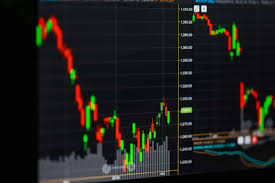
Forex trading licenses are essential for any business looking to operate within the foreign exchange market. They not only ensure compliance with local regulations but also help build trust with clients. For more information on starting your trading journey, visit forex trading license trading-cambodia.com, which offers valuable insights into the trading landscape.
What is a Forex Trading License?
A Forex trading license is a legal requirement for brokers and companies engaged in foreign exchange trading. Depending on the jurisdiction, the requirements and types of licenses may vary significantly. Having a license allows brokers to operate legally, ensuring that they comply with financial regulations and standards established by regulatory bodies.
The Importance of Forex Trading Licenses
Obtaining a Forex trading license is crucial for several reasons:
- Regulatory Compliance: A trading license guarantees that the broker adheres to regulatory standards, which helps protect investors.
- Increased Credibility: Licensed brokers earn the trust of clients, enhancing their reputation in the market.
- Legal Protection: A license offers legal protection for both the broker and clients in case of disputes, ensuring a more stable trading environment.
- Market Access: Some markets require brokers to hold valid licenses in order to operate, making it necessary for expansion.

Types of Forex Trading Licenses
Forex trading licenses come in various types based on jurisdiction and regulatory standards. Here are some common licenses:
- International Forex License: Issued by offshore jurisdictions, these licenses are often sought by brokers looking for lower regulatory requirements.
- UK FCA License: The Financial Conduct Authority in the UK is known for its stringent requirements, making this license one of the most respected in the industry.
- CySEC License: The Cyprus Securities and Exchange Commission offers a license that is popular among brokers due to its relatively easy application process.
- ASIC License: The Australian Securities and Investments Commission license is highly regarded, ensuring stringent compliance with financial regulations.
How to Obtain a Forex Trading License
The process of obtaining a Forex trading license can be complex and varies by jurisdiction. However, the general steps include:
- Research Jurisdiction: Choose the jurisdiction where you want to obtain the license based on your target market and regulatory requirements.
- Prepare Documentation: Gather necessary documents such as business plans, proof of funds, and identification for shareholders and directors.
- Application Submission: Submit your application to the relevant regulatory body along with all required documentation and fees.
- Compliance Checks: Be prepared for thorough background checks and audits by the regulatory authority.
- License Approval: Once compliance checks are complete, the regulatory authority will grant the license if everything meets the necessary requirements.
Costs Involved in Obtaining a Forex Trading License
Obtaining a Forex trading license comes with various costs that can include:

- Application fees charged by the regulatory body
- Legal fees for consultancy and documentation preparation
- Capital requirements depending on jurisdiction
- Annual renewal fees to maintain the license
It is crucial to factor these costs into your business budget when planning to launch a Forex broker operation.
Common Challenges in Obtaining a Forex Trading License
The journey to acquiring a Forex trading license is not without challenges. Common hurdles include:
- Bureaucracy: Dealing with paperwork and lengthy processes can be time-consuming.
- Capital Requirements: Meeting the initial capital requirements can be a barrier for some new brokers.
- Compliance Standards: Adhering to strict compliance and reporting requirements is critical but can be demanding.
- Changing Regulations: Keep up with any changes in regulations within the chosen jurisdiction.
Conclusion
Acquiring a Forex trading license is an essential step for anyone looking to become a reputable broker in the foreign exchange market. A license not only facilitates legal compliance but also builds trust and credibility among potential clients. Understanding the different types of licenses, the application process, and the associated costs can significantly pave the way for a successful trading venture. With the right preparation and commitment, you can navigate the complexities of obtaining a Forex trading license and set your business on the path to success.
